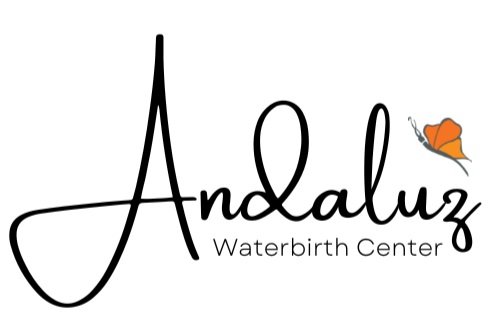How Acupuncture Can Benefit You During Pregnancy and Postpartum
Are you curious about the way that acupuncture can contribute to whole body health during pregnancy and the postpartum period? We have a guest post written by local Licensed Acupuncturist in Oregon Alyssa Schaffer.
Nurturing the Journey: Acupuncture and East Asian Medicine in Pregnancy and Postpartum
by Alyssa Schaffer
Pregnancy is a journey filled with countless milestones, each marked by its own set of unique challenges and joys. From the early days of conceiving to the postpartum period, this transformative experience can be a whirlwind of emotions and physical changes. Alongside modern healthcare practices, the ancient wisdom of East Asian medicine, including acupuncture, herbal medicine, bodywork, and lifestyle recommendations, offers holistic and time-tested support to pregnant and postpartum folks.
First, it's essential to understand the broad scope of practice that acupuncturists offer. Beyond acupuncture, an acupuncturist’s toolkit can include herbal medicine, massage, cupping, gua sha, moxibustion, and valuable knowledge on lifestyle and supplements. Each practitioner's approach may vary, but collectively, they have the resources to support individuals through their unique pregnancy and postpartum experiences.
Many couples facing fertility challenges turn to in vitro fertilization (IVF) or intrauterine insemination (IUI) for help. Acupuncture can complement these assisted reproductive techniques by reducing stress, improving blood flow to the reproductive organs, and promoting overall wellness, increasing the chances of a successful pregnancy.
Pregnancy Challenges and Preparing for Labor
The early stages of pregnancy can bring their own set of challenges, from nausea, vomiting, and potential loss to heartburn, acid reflux, constipation, and hemorrhoids. For some, there's an added layer of emotional ups and downs as well. Acupuncture offers a holistic approach to manage these symptoms and provide emotional support during this delicate phase.
As the pregnancy progresses, aches and pains often manifest, particularly in the hips and belly. Acupuncture, combined with bodywork, can help alleviate these discomforts, making the journey more comfortable.
The positioning of the baby in the womb can significantly impact labor and delivery as well. Acupuncturists often employ acupuncture and moxibustion to encourage babies to flip from a breech or suboptimal position. Moxibustion, the use of dried mugwort, warms specific points on the body, promoting movement. A traditional point located on the little toe, in particular, has proven remarkably effective in this regard.
Around 34 weeks into pregnancy, the focus shifts further to preparing the body for labor. Acupuncturists incorporate specific points to open the pelvis, encourage the baby to drop further down, and eventually facilitate cervical ripening and dilation. When due dates sometimes pass, acupuncturists also possess the tools to encourage natural labor, even after 40 weeks.
Beginning Postpartum Care
Bringing new life into the world is a transformative experience, and the journey continues even after childbirth. The postpartum period is a delicate time marked by significant physical and emotional changes.
As the body adjusts from pregnancy to postpartum, it's essential to prioritize self-care and healing. Acupuncture plays a vital role in aiding this transition. Postpartum acupuncture treatments are tailored to the individual's unique needs. They address various discomforts experienced after childbirth, including perineal discomfort, clogged milk ducts and blebs, and postpartum bleeding. These treatments can alleviate pain, promote overall well-being, and even reduce the risk of postpartum depression and anxiety.
Postpartum hormonal shifts are a common challenge. Acupuncture helps in rebalancing hormones, ensuring a smooth transition to the postpartum phase. This balance is not only essential for current well-being but also for reproductive health in the future.
Photo by Evelynne Gomes Greenberg
Acupuncture is known to support lactation by promoting milk production and addressing common issues like low milk supply and clogged ducts. Complementing acupuncture, herbal medicine can provide a holistic approach to lactation support, ensuring a strong and healthy start for your baby. Specific herbs and formulas are known for their lactation-supporting properties, which boost milk supply naturally and safely.
While acupuncture and herbal medicine can be highly beneficial, it's essential to consult with qualified acupuncturists and herbalists who understand the nuances of postpartum care. These professionals can tailor treatment plans according to individual needs, ensuring safety and effectiveness.
If you're embarking on the journey of pregnancy and parenthood, consider the wisdom of these ancient practices as a vital complement to your healthcare. Your acupuncturist is your guide, ready to support you through this transformative experience, tailoring their care to your unique needs every step of the way, ensuring that this beautiful chapter in your life is as healthy and fulfilling as possible
Alyssa Schaffer (she/her/ella) is a Licensed Acupuncturist in Oregon with a profound passion for promoting the well-being of folks during these pivotal phases of their lives. She holds a Masters in East Asian Medicine and specializes in nurturing healthy menstruation, supporting fertility, guiding individuals through pregnancy, and providing compassionate postpartum care. Alyssa finds immense fulfillment in holding space for individuals who enter her treatment room, providing them with a comforting, compassionate, and holistic approach to their health and well-being. With a warm heart, she strives to be a true advocate for her patients, making a meaningful impact in the lives of those she serves.
Alyssa operates from two vibrant clinic locations, Luna Wellness in NE Portland and Open Hand Health in SE Portland, and offers care in both English and in Spanish.



